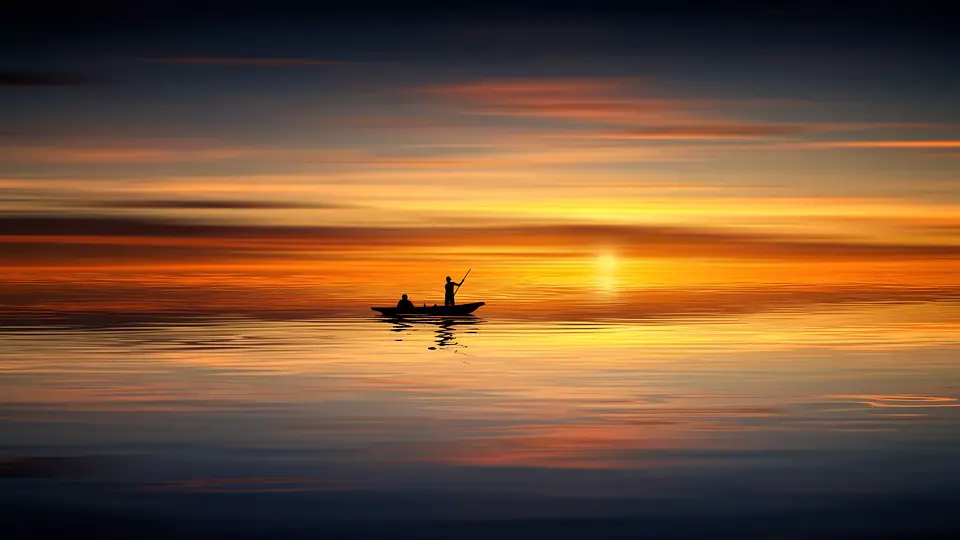Lithuania, a country with a rich fishing tradition and abundant water bodies, offers the perfect setting for building friendships and creating lasting memories. The serene lakes, meandering rivers, and picturesque coastline provide ample opportunities for fishing enthusiasts to come together and forge strong bonds. In this blog post, we will delve into the unique relationship between fishing and friendship in Lithuania and explore the ways in which the two intersect.
The Tradition of Fishing in Lithuania
Fishing has been an integral part of Lithuanian culture for centuries, with a deep-rooted tradition that has been passed down through generations. The country’s numerous lakes and rivers have sustained local communities for centuries, serving not only as a source of sustenance but also as a means of recreation and socializing.
Building Bonds Through Fishing
One of the most compelling aspects of fishing in Lithuania is its ability to bring people together. Whether it’s a group of friends, family members, or even strangers, the act of fishing fosters camaraderie and provides a platform for meaningful interactions. Spending time on the water, sharing stories, and celebrating the joy of catching a fish can create lasting friendships and memories that endure long after the fishing trip is over.
Exploring Lithuania’s Fishing Hotspots
Lithuania boasts a diverse array of fishing locations, each offering a unique experience. From the expansive waters of Lake Plateliai to the tranquil Vilnele River, there is no shortage of opportunities to bond over a shared love of fishing. Whether you prefer fly fishing for trout or casting for perch, Lithuania’s waters provide a wealth of options for anglers of all skill levels.
Table: Notable Fishing Spots in Lithuania
| Location | Fish Species | Notable Features |
|---|---|---|
| Lake Plateliai | Trout, Perch, Pike | Scenic views, abundant fish population |
| Vilnele River | Trout, Grayling | Peaceful atmosphere, clear waters |
| Curonian Lagoon | Zander, Perch, Pike | Unique coastal setting, diverse fish species |
Preserving Lithuania’s Natural Resources
While fishing in Lithuania offers an incredible opportunity for bonding and enjoyment, it’s crucial to prioritize the conservation of the country’s natural resources. Practicing sustainable fishing methods, adhering to catch limits, and respecting environmental regulations are essential to ensuring that future generations can continue to benefit from Lithuania’s abundant waters.
Taking Care of Lithuania’s Waters
By adopting a conservation-minded approach to fishing, individuals can contribute to the long-term health of Lithuania’s aquatic ecosystems. This includes properly disposing of fishing line and tackle, minimizing water pollution, and supporting initiatives that aim to protect and preserve the country’s natural habitats.
Conclusion
Fishing in Lithuania is not merely a pastime – it is a platform for building deep, meaningful friendships and connections. As anglers come together to explore the country’s diverse fishing spots, they have the opportunity to foster a shared love for the natural world while creating lasting memories. By prioritizing sustainability and conservation, fishing enthusiasts can ensure that Lithuania’s waters remain bountiful for generations to come.
Frequently Asked Questions (FAQs) About Sustainable Living
1. What is sustainable living, and why is it important?
Sustainable living involves making choices that minimize our impact on the environment and support the well-being of both present and future generations. It is important because it helps preserve natural resources and promotes a healthy, thriving planet for all living beings.
2. How can I practice sustainable living in my daily life?
You can practice sustainable living by reducing your energy consumption, minimizing waste, supporting local and organic products, and making environmentally conscious choices in your daily activities.
3. What role does fishing play in sustainable living?
Fishing can be a part of sustainable living when anglers adhere to catch limits, practice responsible fishing methods, and support conservation efforts to protect aquatic ecosystems.
4. How can I promote sustainable fishing practices in my community?
You can promote sustainable fishing practices by educating fellow anglers about conservation measures, participating in clean-up efforts, and supporting organizations dedicated to preserving aquatic environments.
5. What are the benefits of sustainable living for future generations?
Sustainable living benefits future generations by preserving natural resources, supporting biodiversity, and creating a healthier environment for all living beings to thrive.
6. Can sustainable living positively impact the economy?
Yes, sustainable living can positively impact the economy by fostering innovation, creating new job opportunities in green industries, and reducing long-term environmental costs.
7. How does sustainable living contribute to a healthier lifestyle?
Sustainable living promotes a healthier lifestyle by encouraging individuals to consume nutritious, locally sourced foods, engage in physical activities that benefit the environment, and reduce exposure to harmful pollutants.
8. What role does community involvement play in sustainable living?
Community involvement is crucial in sustainable living as it allows individuals to collaborate on conservation efforts, share knowledge, and collectively address environmental challenges for the greater good.
9. How can I inspire others to embrace sustainable living?
You can inspire others to embrace sustainable living by setting a positive example, sharing educational resources, and engaging in open, constructive conversations about the importance of preserving the planet for future generations.
10. What are some practical tips for adopting a more sustainable lifestyle?
Practical tips for adopting a more sustainable lifestyle include reducing single-use plastics, conserving water and energy, supporting local farmers and artisans, and prioritizing products with minimal environmental impact.
In conclusion, embracing sustainable living and recognizing the intrinsic connection between fishing and friendship in Lithuania offers an opportunity to build meaningful connections while preserving the natural world. By promoting conservation efforts and making environmentally conscious choices, individuals can contribute to a thriving planet for current and future generations to enjoy.

